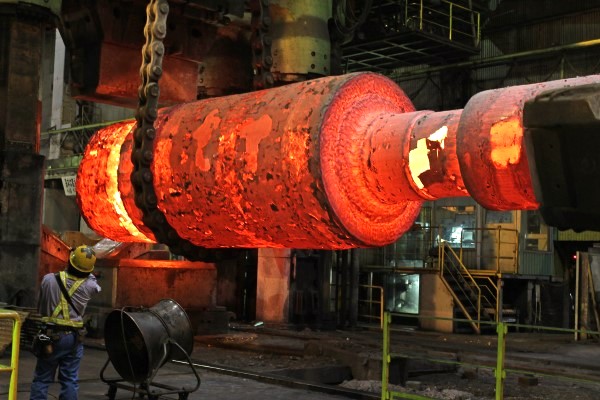Prior to the seminar, a ceremony took place for the signing of a memorandum of understanding (MOU) between JAIF and the Nuclear Industry Forum in Spain (“Foro Nuclear”) to further promote cooperation between the two. The cooperation will take place in the form of strengthening dialogue and information exchanges between companies from both countries, as well as developing businesses in Spain, Japan and elsewhere.
Currently seven nuclear power plants are in operation in Spain, with demolition underway at an eighth: the José Cabrera NPP (PWR, 160MWe), which was shut down in 2006. Business opportunities related to decommissioning can thus be expected to increase in the future.
The most recent seminar was held to take advantage of a visit to Japan by representatives of Spanish nuclear-related companies seeking cooperation with their Japanese counterparts. At the sessions, industrial representatives from both countries learned about the current state of and the future outlook for nuclear plant decommissioning in Japan and Spain.
A t the signing ceremony, JAIF’s President Akio Takahashi described the MOU as “helpful” for promoting business in Japan and Spain. President Antonio Cornadó of Foro Nuclear, in welcoming comments, said, “I am very pleased today. Our Japanese colleagues value human ties more than any others. I hope that the members of each forum will establish friendly relationships that bear fruit in their businesses.”
t the signing ceremony, JAIF’s President Akio Takahashi described the MOU as “helpful” for promoting business in Japan and Spain. President Antonio Cornadó of Foro Nuclear, in welcoming comments, said, “I am very pleased today. Our Japanese colleagues value human ties more than any others. I hope that the members of each forum will establish friendly relationships that bear fruit in their businesses.”
At the business exchange events, representatives from five leading Spanish industrial concerns—Empresarios Agrupados, ENSA, Nusim, Tecnatom and Technicas Reunidas—introduced themselves and explained their strengths to the representatives from Japanese companies, 17 of which took part in the events.
For example, Empresarios Agrupados, which already deals with Hitachi-GE and Mitsubishi Heavy Industries (MHI), discussed its experience in decommissioning reactors, not just in Spain but also in Bulgaria and Slovakia.
Meanwhile, Nusim, referring to its small size, touted its specialization in decommissioning. It stressed its experience in handling drums of radioactive waste, reducing their volume and solidifying them in cement, as well as in developing transport-related equipment and technology.
Enthusiastic one-on-one discussions between the two sides followed the introductions.











